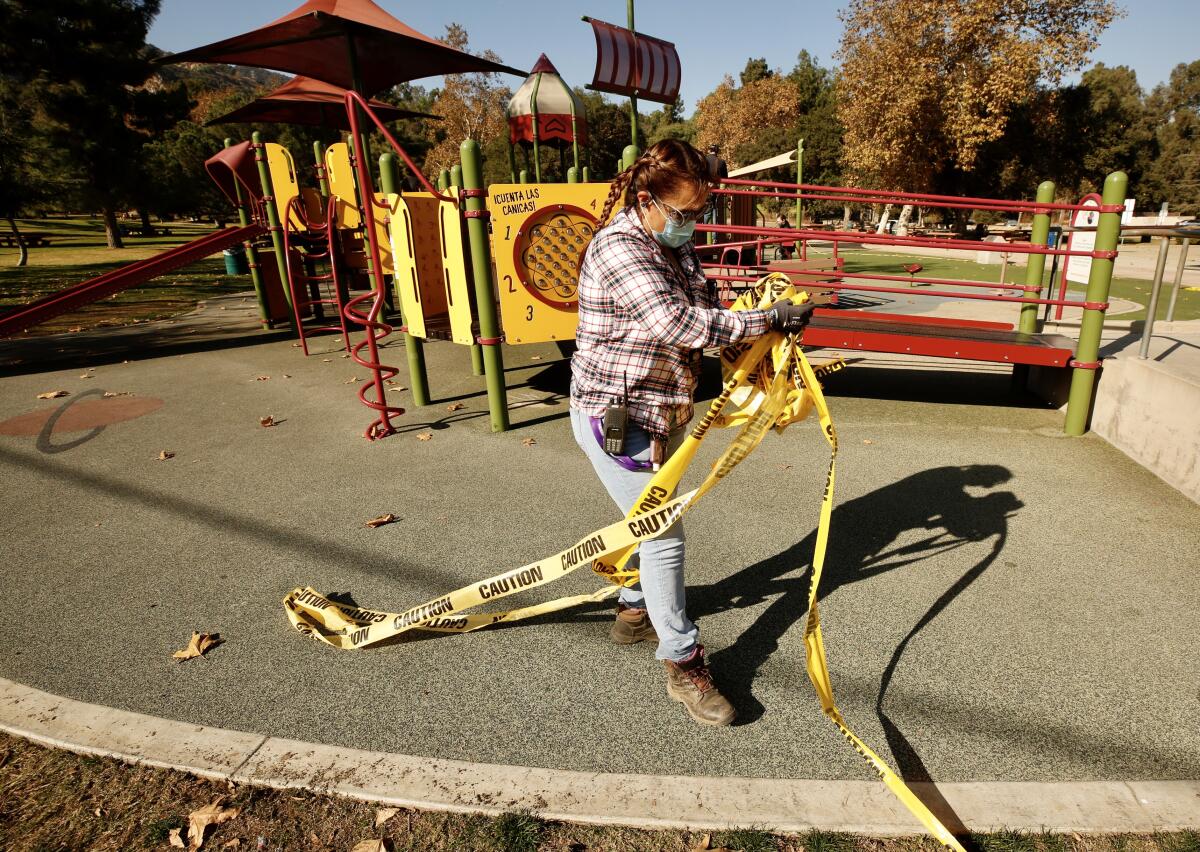Endorsement: No on Proposition SP. Los Angeles can design a better tax for parks

Passing a permanent tax hike is not something to take lightly. Voters deserve to know how their money will be spent and tax measures should be designed to give them confidence that the funds will deliver meaningful results.
The parks and recreational facilities parcel tax on the Nov. 8 Los Angeles city ballot doesn’t meet that basic threshold. It’s a blank check to City Hall that was slapped together at the last minute without community input. Voters should reject the measure and demand that city leaders come back with a transparent, fully formed proposal that ensures aging park facilities are restored, new parks are built and communities know what to expect for the additional tax contribution.
Proposition SP would enact a parcel tax of 8.4 cents per square foot on residential and commercial buildings, generating about $227 million a year. The owner of a 1,500-square-foot house, for example, would pay $126 per year. After 30 years, the tax would decrease to 2.2 cents per square foot, generating about $60 million a year in perpetuity.
There’s a valid argument for some kind of tax dedicated for city parks. Voters passed Proposition K in 1996, and that assessment, which generates $25 million a year for park construction projects, expires in the 2026-27 fiscal year. That money has helped build new parks and upgrade existing ones.
City facilities still need an estimated $2.7 billion in maintenance and renovation. A 2018 assessment by the Recreation and Parks Department found that 20 recreation centers and 12 pools are in such poor condition that they should be replaced. Across city facilities, there are buckling concrete paths, dying trees and recreation centers that are too small to serve their communities. The department’s budget was not restored after the Great Recession, and there’s not enough personnel for daily maintenance of restrooms, playgrounds and other facilities. Plus, many neighborhoods still do not have quality green space within walking distance.
There is a need for more money to keep the city’s parks from falling into ruin and to develop new recreational facilities. But the language of Proposition SP lacks any detail or funding distribution plan that would ensure the money addresses those needs. The City Council and mayor could use the tax revenue to fund any project that fits into the broad categories of open space, recreation venues and waterways. The only guidance spelled out in the ballot measure is that the funds will be “prioritized based on the city’s equity index with the goal of providing park poor communities with safe healthful access to parks and recreation facilities.” That’s a goal. Not a guarantee.
The vagueness of the measure has led critics to say this is a backdoor tax to fund venues for the 2028 Olympics. Supporters say that’s not the case — but the lack of spending commitments gives no assurance.
Moreover, there were no community hearings, no outreach to neighborhood councils, no public consultation about the size of the tax or what it should include.
Because of the racist, classist Article 34 in the California Constitution, cities need voter authorization to allow development of low-income housing.
The Recreation and Parks Department originally asked for a tax that would generate $4.6 billion over 30 years — enough money for renovations, new construction, expanded recreation programs and increased staffing. At the last minute, the City Council voted to raise the tax to generate $6.8 billion over 30 years. Parks department staff said the $2-billion increase was designed to pay for the Los Angeles Zoo modernization and possibly other big-ticket items, like the Los Angeles River restoration. But that’s not spelled out anywhere in the ballot measure, so how would voters know what they’re agreeing to fund?
In 2014, Los Angeles County voters rejected a parcel tax for parks, in part because it was a poorly constructed measure put on the ballot at the last minute. County leaders went back to the drawing board; they held public hearings and drafted a new measure that spelled out how the money would be spent equitably, by need, geography and interest. Voters passed the tax in 2016.
With Proposition K expiring in 2026, there’s still time for L.A. leaders to come up with a better plan than Proposition SP and get it on the 2024 ballot. Voters shouldn’t settle for vague promises when they could have a parks tax with guarantees.
More to Read
A cure for the common opinion
Get thought-provoking perspectives with our weekly newsletter.
You may occasionally receive promotional content from the Los Angeles Times.











